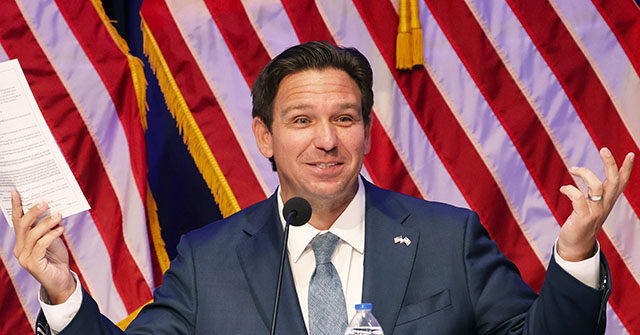In recent developments in Florida, Governor Ron DeSantis has made headlines by vocally defending the state’s aggressive stance on illegal immigration and its purported implications for the economy. Responding to criticism from the establishment media, DeSantis has dismissed claims that the recent legislative actions aimed at cracking down on illegal immigration would negatively impact Florida’s economy. In a post on X, he asserted that the criticism is merely “false media narratives” and emphasized that evidence shows good policy produces positive outcomes. His administration’s goal, he stated, is to disincentivize illegal immigration, which he believes contributes to the overall health of the state’s economy.
The economic indicators from Florida support DeSantis’s contention that these immigration policies are not harming the state’s economic performance. According to data released this week, Florida’s gross domestic product (GDP) grew by 3.2 percent between the first and second quarters of 2024, while the Bureau of Labor Statistics reported the creation of 133,000 jobs over the past year. This growth is directly juxtaposed against the predictions made by some media outlets, which warned that the new restrictions on migrant labor would lead to a downturn in Florida’s economic output.
The legislation in question includes several significant measures aimed at curbing illegal immigration. These provisions, passed by the Florida legislature in May, stipulate mandatory E-Verify rules for employers, a ban on local governments issuing identification to migrants, and measures to suspend the licenses of businesses employing undocumented workers. Additionally, the law provides funding for transporting illegal immigrants to other states and mandates that hospitals report the number of undocumented patients they treat. Critics from the left have suggested that enacting such measures would drive illegal immigrants out of the state and subsequently damage the economy. Contrary to these predictions, DeSantis has reported that the new rules have not adversely affected Florida’s economic growth.
Forbes highlighted this stark contrast between the naysayers’ predictions and actual economic outcomes, labeling Florida’s approach to immigration as a potential “blueprint” for similar national policies under former President Trump. Despite warnings from left-leaning critics that the E-Verify requirements could cost Florida upwards of $12.6 billion in the first year alone, Forbes noted that these fears have not materialized. Instead, Florida’s economic growth has remained robust, with the state’s GDP increasing by 9.2% in the previous year—outpacing national averages significantly.
The ongoing increase in Florida’s economic indicators challenges the narrative that strict immigration policies necessarily lead to economic decline. In fact, the data indicates that the state has excelled under this new legislative environment. For the first half of 2024, Florida was one of the few states to show a growth rate of 6% or higher in both quarters, further reinforcing the argument that the state’s economic strategies, including immigration policy, are effective.
The juxtaposition of DeSantis’s steadfast defense of immigration reform alongside the state’s positive economic indicators demonstrates the complexities of the political and economic landscape in Florida. By emphasizing that sound policy can yield economic gains, he aims to invalidate the critiques posed by mainstream media and liberal commentators. This ongoing debate highlights a significant intersection between immigration policy and economic theory, with Florida serving as a critical case study for future legislative efforts across the nation.

